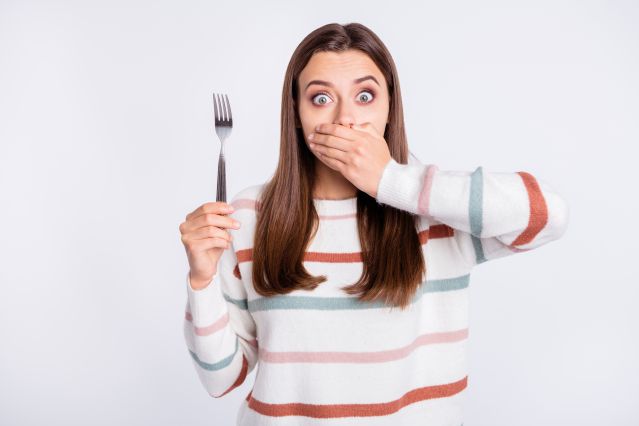Diet
Bamboozled Into Diet Solutions
Why do we keep using restrictive dieting to lose weight when it doesn’t work?
Posted January 31, 2023 Reviewed by Michelle Quirk
Key points
- The messages that surround us and the foods that are available make it difficult to make healthy choices.
- We can become more discerning of our environment and things in our human nature that are working against us.
- Deviating from the current norms around eating and dieting can create better health for us.

Dieting has been going on for a very long time. The thing is, it never seems to work! Even as more and more diets come out, the results do not differ. It is very clear that most, if not all, restrictive diets fail to bring about any long-term results.
This is not really news. And yet, the beat goes on. People still cling to the idea of using a diet to slim down, hoping that the next one they try will do the trick.
Why can’t we break free of using this bound-to-fail approach?
We need to deviate.
As suggested by Pilar Gerasimo in her book, The Healthy Deviant, we are surrounded by messages that only put a bandage on the problem. The real issue is that our lives are very different from what humans have been doing for the last 2.5 million years.
In other words, our current lives are much more confusing, alienated from nature, and unrelated to the ways of being that evolved over millions of years. How we nourish ourselves is much different now.
How does this play out? Often the messages we are surrounded by regarding how to eat and how to look are manufactured to be in line with some ideal. That ideal is a manipulation that takes advantage of our human nature. We have a tendency to compare ourselves to others, blame ourselves for our shortcomings, and seek easy solutions to complex problems.
For example, when it comes to eating, we have evolved to be attracted to sugar, salt, and fat. We are drawn to sugar and fat because they are a concentrated source of calories. Back in the day, finding easy fuel for our bodies was an energy saver. It would cut down on the hours needed to find more food. Salt was a physiological necessity, and so it was sought after.
Now we have a boatload of ultra-processed foods that take advantage of those attractions. A study of more than 9,000 people published in the British Medical Journal Open and based on 2009–2010 data indicated that, in the United States, 57.9 percent of our calories consumed fall into the ultra-processed category. One reason this percentage is so high is that ultra-processed foods tend to be calorie-dense.
We are getting a great percentage of our calories from “foods” that are nutritionally deficient and designed to be compulsively consumed. For the record, ultra-processed foods are more like formulations that include flavors, colors, sweeteners, and other additives designed to cover up the undesirable aspects of the concoction. Most add sugar or sugar substitutes, salt, and extra fat to increase the palatability and keep us coming back for more.
This situation can easily lead to weight gain and many metabolic disturbances. These “foods” are far from what our bodies are intended to use for nutrition and health.
Back to The Healthy Deviant. Pilar outlines the suffering that comes from trying to fit in with how we are currently supposed to be—happy, thin, successful, and fulfilled. Often, we feel that our lives fall very short of the mark. Then along comes alleged solutions to our problems of not measuring up. She makes the case that we are trying to follow solutions to our problems that are just going to cause more suffering! We can certainly see this when we look at restrictive diets or a pervasive feeling that we need to whip our bodies into shape to fit in with some ideal.
Dieting is not the answer.
Unfortunately, instead of the seemingly simple solution of going on a diet, the real solution is not a simple one. We need to get away from eating unhealthy, ultra-processed foods and stop trying to restrict what we eat in the various ways that diets propose.
Instead, we need to shift our focus to eating whole, nonprocessed foods, rich in lean proteins, fruits, vegetables, legumes, whole grains, nuts, seeds, and healthy fats.
Even though this appears to be a simple solution, it is not. For one thing, many people do not have access to whole foods and may not be able to afford them.
For those not in that situation, we can ask the following question:
“What things did you consider when you decided to eat the way you do now?”
In my experience, many people have not thought about this before. Understandable. The answer encompasses many areas of life. Let’s take a look at some of them:
- Our relationship with food was established in our early days in whatever family situation we experienced.
- We often gravitate to the wrong foods in social situations.
- Many of us are prone to emotional eating and following our impulses.
- We may not be literate when it comes to identifying ultra-processed foods.
- We often blame ourselves for lack of motivation or control.
- We may not be aware that our environment can create a certain “learned helplessness,” which can lead us to diets that just tell us what to do.
- We may vary in our openness to questioning what we see in advertising, media, and corporations that promise instant gratification, personal fulfillment, and permanent, easy, solutions.
We can do something about it.
To put it into a summary: Our lives are complex, our bodies are complex, the origins of our behaviors are complex, and the way our environment has evolved is complex. But, we can slowly make a shift from our current responses to one that is more in line with health and well-being. This is the message in The Healthy Deviant.
Just in terms of wanting to lose weight and changing how we eat, we need to do the following:
- Become more discerning about the messages being thrown at us.
- Decide to go against the tide.
- Take a stand against ultra-processed foods.
- Not be concerned about “fitting in” during social situations, including with family.
- Take more time to focus on self-care.
- Prioritize health over social pressure.
- Dedicate ourselves to learning the skills we need to prepare healthy foods.
- Learn skills relating to impulse control (like mindfulness meditation, deep breathing, and self-observation).
- Learn more about how our bodies and minds work in terms of making healthy choices.
This is a tall order, and the list is not all-inclusive. We have absorbed a way of being that is generally not healthy for us. We can begin to change by upping our awareness of the false narratives and things in our nature that make us susceptible to them. We can become healthy deviants.
References
Gerasimo, P. (2020). The Healthy Deviant: A Rule Breaker’s Guide to Being Healthy in an Unhealthy World. North Atlantic Books, Berkeley, California.
Steele, E.M., et al. (2016) Ultra-processed foods and added sugars in the US diet: evidence from a nationally representative cross-sectional study. BMJ Open. 6:e009892. Dol:10.1136.bmjopen-2015-0009892.




